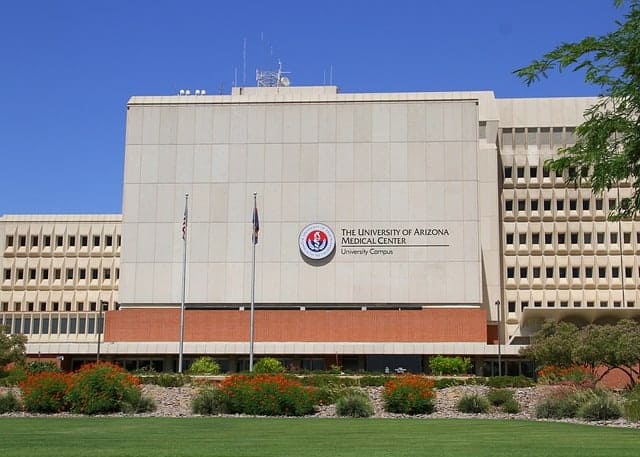Have you ever needed health care and wondered how you can find out if a physician you’re considering is a good doctor? Or if there’s someone better-credentialed who you should see instead? Well, it turns out that there’s many ways to easily research and screen a new doctor. Here’s a guide.
How to Find the Best Doctors by Researching Them
Referrals
This is the classic way, by asking friends and family for recommendations. It’s not necessarily a bad way, but I don’t like to limit my background check to such recommendations because I don’t consider them the most reliable method.
Don’t get me wrong; it’s a great place to start. But it’s not a good place to stop, because all you are getting is one person’s interpretation of their experience with a doctor, or what they’ve heard others say about the physician.
Search Engines
Ah, the simplest and quickest modern way. Just Google the doctor! Often, if there’s something majorly wrong, you’ll find out right away. However, if you want to go deeper, there are several ways I know how.
Looks like they’re running background checks…
Check the Doctor’s License
Nowadays, this is easy. All you have to do is Google you state’s medical licensing agency, and find a doctor by name. There, it should tell you if the physician is duly licensed to practice medicine in your state, and can also (depending on the state) tell you if they have a history of discipline or complaints.
Consider Going With a Board-Certified Physician
Does Board Certification Make Someone a Good Doctor?
Generally speaking, board-certified means that a doctor has taken and passed extra exams in her/his area of specialization. Although it is not required to practice medicine, it means that the doctor has achieved this additional credential. It does not necessarily mean they’re a good doctor, but it does show that they’ve taken and passed the standardized tests.
That a doctor is not board-certified does not mean that he/she is a bad doctor, and many physicians have serious concerns about the system. Some have decades of experience, and have determined not to seek the certification for one reason or another. Even so, board certification is certainly an item that you can include in your screening and take into account, although there are excellent doctors that are not certified.
How Do I Find Out If a Doctor is Board-Certified?
There are many “boards”, each corresponding to a different specialty. What you do is find the board for that particular area of medicine, and run a search on their website.
Also, note that physicians come in two varieties: MDs and DOs. MDs are medical doctors, while DOs are doctors of osteopathic medicine. For the purposes of this article, what’s important is that, although they are both fully qualified and licensed to practice medicine, the have different boards that certify them. (For a discussion on the difference between MDs and DOs, see, for example, here).
So, let’s say you are considering a general surgeon. If she/he is an MD, you can check board certification with the American Board of Surgery. If we’re talking about a DO, check the American Osteopathic Board of Surgery. But what about an orthopedic surgeon? Well, there’s the American Board of Orthopaedic Surgery (for MDs) and the American Osteopathic Board of Orthopedic Surgery (for DOs).
If you can’t find the doctor you’re looking for in a board’s database, don’t hesitate to call their office and ask about board certification. The search might not be working for some reason, or you might be looking on the wrong board. In any case, it’s a good idea to be informed.
Medical School/Training
This is important but, frankly, I care more about board certification than I do about where the doctor went to medical school. There are doctors trained all over the world, and I have no means of verifying the quality of medical schools I have not heard of (and have to rely on the perceived reputation of those I do know of).
I do care a bit more about where they did their residency (and further training), since that’s where doctors learn the ins and outs of their specialties. Nonetheless, I place more stock in board certification, since it is a standardized measure that is the same for everyone.
Check for Medical Malpractice Cases and Claims
Let me make one thing clear from the outset. A lawsuit is a claim. It does not mean that a doctor committed malpractice; all it means is that someone filed a claim against them. It is, however, information that is part of a background check, and that you can use or not use, according to your best judgment.
Finding Claims and Lawsuits
This can be really hard, mainly because of the different state and federal court systems, and the way records are kept. However, here’s how to do a free and basic search that may find a doctor and turn up some (but not necessarily all) medical malpractice cases against that physician:
1. Check Google Scholar by going to the website, clicking “Case law”, and then “Select Courts”:
Then, on the next screen, make sure to check all state and all federal courts:
Then, click done, and search by the doctor’s name.
This will search mainly for things that judges have written in cases. It will probably not search every possible case.
2. Sometimes, your state license search will turn up medical malpractice cases and claims.
3. You can look for filed lawsuits by, usually, searching state court records. This is very difficult because some states allow you to search statewide, but many require you to query each county. Therefore, I would limit myself only to the county where the doctor works (or has worked), but you can look in as many as you want.
The way to find these search functions is to simply Google the name of the county, and “case search” or “case docket search” or something similar.
Again, the mere fact of filed medical malpractice cases and claims don’t mean the doctor did anything wrong. They mean that someone, at some point, alleged they did. However, they’re pieces of information you can consider.
Check Rating Websites for the Best Doctors
These days, there are websites where people rate and review doctors, such as Healthgrades and even Google Maps. These reviews may or may not be useful, depending on many factors such as the number of reviews and how detailed and well-written they are.
One the one hand, you may not want to put much stock on a single bad review. On the other, if a doctor has 90 bad reviews and 10 good ones, that may give you pause.
Find A Doctor Linked to A Prestigious Health System
This a more a shortcut to use to find a doctor, than a screening method. If a doctor is part of, or linked to, a prestigious health system (including medical school systems), it’s likely that such physician has been checked out by that system and is considered a good doctor. I can’t imagine, for instance, that a major university will knowingly have an incompetent doctor working for it or teaching there.
That said, many excellent doctors have their own practices and are not associated with major systems or universities. However, like I said, such associations can be a quick way to check if a doctor is well-credentialed.
Summing It Up
Well, there you have it. I think judgment is key here. I myself won’t go through all this background check rigmarole if all I have is a cold and need a doctor quickly. However, if I’m having open-heart surgery, you bet I’ll research the surgeon before going under the knife.
Knowledge is power. How you use it is up to you.
What do you think about running a background check on a new doctor? How do you find a doctor?






Good advice. Navigating our health care system can by a challenge. It’s critical to have good providers who you trust. Tom
Thanks Tom!
When it’s something big (like surgery) I check these sources to make sure I’m going with someone good.
Cheers,
Miguel
I never thought of a background check; that’s a good idea. I got really lucky with my primary care doctor. He’s such a down to earth guy and have had him for 15 plus years.
Thanks SMM!
Sounds like a great doctor. I moved to Miami a few years ago, and started my doctor search from scratch. So, I had to rely on doing these kinds of searches to find good ones.
Cheers,
Miguel
Ohhh I love deep creeping!!! Thanks for the tips! When we moved to a new area, it was tough leaving behind our trusted doctors and professionals. Luckily – a neighbor next door was on some board that decides who gets to keep their license in a state?! So she sees a lot! I ran a few names by her and she’d just give a thumbs up or a “you should keep your options open” which – I’m sure is all public knowledge anyway if I would have deep creeped like that!
Also daycare. We were considering a non-licensed gal, which is legal if you stay under x amount of kids and their ages. She and her home checked out fine. However, her husband did not. Years earlier he had been arrested for his gun going of in his home while he was cleaning it – and the shot landed in the wall of the woman’s house next door nearly hitting her! I’m sure they have a gun free home now…but, we weren’t taking any risks! Found a much better place we have been happy with (after much deep creeping – it’s so important!)
good read!
Hey Mrs. DS!
Thanks! I’ve always loved doing this kind of sleuthing 🙂 For doctors, if I or a loved one has something serious that needs treating, I’ll do one of these background searches.
That’s quite the story, with the daycare! I’ve handled guns and honestly don’t know how one can go off while you’re cleaning it, unless you left a round in the chamber – but you’re supposed to check this really well before starting to dismantle the gun!
Glad you found good daycare in the end 🙂
Cheers,
Miguel
Nice article, Miguel. It’s super important to do your due diligence on your healthcare providers. Unfortunately, all doctors are not equal!
If I’m able to, I try to get a referral from a physician friend. Those within the professional generally know who the best practitioners are. Otherwise, I’ll do my own research in some of the ways you mentioned.
Hey Michael!
Thanks! Referrals from friends you trust (especially if they’re also doctors) are always a good source. But like you say, I think it’s important that the referrer be your friend, in the sense that an acquaintance may not be as forthright as someone you know well.
Cheers,
Miguel
Good points. I would advise to be just as skeptical about doctor reviews as you would any other reviews, and trust your gut as to how legit or serious they may be.
Now if I could just figure out how much a visit costs before I go.
Thanks Joe,
Yup, reviews are not always trustworthy. With doctors, I’ll pay serious attention to reviews if there’s a decent number of them (like more than 10) and/or if they’re well-written and seem legit. I think it’s a judgment call. Though I’d definitely take pause if a doctor has lots of bad reviews.
Figuring out costs is always a pain, especially when it’s for multiple procedures. I sometimes ask for billing codes, but even that’s not foolproof.
Cheers,
Miguel
Wow interesting perspective from a lawyer!! Especially the Google Scholar to check for malpractice cases. I haven’t heard of that.
There is much less malpractice here in Canada and we don’t have DO’s (just MD’s). I don’t know if they have this in the US, but “Rate my MDs” is a good website to check, if not just for the laughs- it is hilarious.
I googled the OB to delivered my baby and someone wrote “he looks like a food truck guy but boy is he good”
— that description was spot on. My OB (whom I never met before, he was called on by my family doctor who referred on) looked like a food truck server. He wore jeans, a zip-up vest, and had a very casual bed side manner.
Of course to take reviews with a grain of salt- sometimes people can be angry and don’t understand the medical system or healthcare and write angry comments for ill-informed reasons. For example, many psychiatrists often get bad reviews, because they deal with that demographic.
Hi GYM,
Thanks! It looks like RateMDs does work in the US. I think it’s definitely useful to check out ratings websites, especially if the doctor in question has a lot of reviews and/or well-thought-out ones. But like you say, one has to be discerning, since not all reviews (bad or good) are fair or deserved.
LOL on that OB story!!! 🙂
Cheers,
Miguel
I’ve always found surgery to be mind-boggling. Think about it. You don’t really know the doctor and his/her staff, and you’re letting them knock you out and open you up with a knife. Fortunately, I’ve never had surgery. But a few years ago I had a colonoscopy. Again, same situation. I never met the doctor who performed the procedure until the day of the procedure. He came into the prep area, introduce himself, and fifteen minutes later I was out cold and he was snaking a camera through my intestines. Weird. But such is modern life. Thanks for this post, Miguel. We all got to be a little more discerning when it comes to healthcare in general and choosing a doctor in particular, and this post will definitely help with the latter concern. Knowledge = power. Cheers, my friend.
Hey Mr. Groovy,
Man, you are a picture of health! 🙂 I’m 35 and have had at least four surgeries by now. It is kind of odd when you think about it, since you’re letting someone you’ve met with for maybe an hour (or less) open you up. I guess one really has to trust the system and what you can find out with a background check.
I think that for something serious, there’s so much riding on the doctor that it’s good to do some research to find the best one possible, with the information available. For something lesser (like a cold), I’ll just trust whoever’s on duty at my closest clinic, though.
Cheers,
Miguel